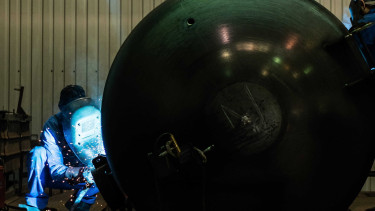Hungary, Romania may derail international gas pipeline project
Unexpected Hungarian measure may detail international project
The Hungarian transmission system operator FGSZ took the European gas market by surprise on Friday when it announced it was no longer in a position to hold an open season on the Romanian-Hungarian-Austrian section of the pipeline.Instead, FGSZ noted, the only ‘economically viable’ part of the Bulgaria-Hungary-Romania-Austria (BRUA) pipeline would be the existing Romania-Hungary interconnector, which could be expanded from its current capacity of 4.4 billion cubic metres (bcm) to 5.26bmc/year.
According to ICIS, FGSZ said it had contacted the Romanian grid operator Transgaz with a view to conduct an open season procedure just on this point. The procedure would have an almost identical draft for the Romania-Hungary project only.If the rulebook is approved by Romanian regulator ANRE, the original start date of commercial operations of 1 October 2022 would still apply, according to FGSZ.
ICIS understands that Romanian and Hungarian officials have until 1 August to approve the rulebook. If they fail to do so, the procedure has to start from scratch, but will then need to be in line with the European CAM network code.
Will it not be built at all?
In practice this means, that natural gas might not even reach Austria, which would be a shocking turn of events considering that “for the last three years of the process, Austria has been coordinating the Romania-Hungary-Austria (ROHUAT) project by organising legal workshops and putting that expertise to bring the project to ready level," a source close to the market told ICIS.
“I don’t know if there will be any project at the end," the source added.According to FGSZ the gas could be exported to Slovakia, Ukraine, Serbia and Croatia.
The capacities of the Slovak interconnector is 1.75bcm/year, the Ukrainian pipeline 6.10bcm/year, 4.81bcm/year for the Serbian connection and 2.62bcm/year for Croatia.
The source told ICIS that initially, the ROHUAT project would have ensured larger security of supply by connecting the Black Sea gas reserves into the European gas infrastructure.
In its original form spearheaded by the EU, BRUA is expected to travel 582km south to north, linking Bulgaria to the central European Baumgarten hub in Austria. Natural gas could come either from the Black Sea, or from the Caspian region when the new volumes come on-stream by the end of the decade.
“With this new development, the new source would be sacrificed and it would also limit upstream activity on new markets. I think the target group will also change with this shift in the direction of the project as the gas was initially aimed at western European hubs through the Baumgarten border point in Austria," the source added.
If the rulebook is approved and the gas is not shipped to Austria, companies which expect to export the Black Sea gas, including the US ExxonMobil, or Austria’s OMV could be locked out of regional exports.
Instead, Russia’s Gazprom may be able to use the existing infrastructure to sell Russian gas to the region. This is because Russia is in the process of building TurkStream, a pipeline that would cross the Black Sea.
Construction works have already started on the first string which will supply the Turkish market.
Gazprom said in February it had also started building the offshore section of the second string, which could connect with the existing onshore infrastructure in Bulgaria.
"The full activation of the Vertical Corridor will give the entire region an opportunity to significantly benefit from diversified natural gas import that Greece has and which will soon be further increased, via an upgrade of the LNG Terminal in Revythousa and the Caspian Sea gas that will be transported by the TAP pipeline which is under construction," the consortium of the companies (DESFA) said.
The start of the Open Season Procedure for ROHUAT was already put off this spring.
“Following the feedback received in the course of the Shipper Event held on 8 March in Budapest, all involved TSOs (SNTGN Transgaz SA, FGSZ Ltd and Gas Connect Austria GmbH) and NRAs (ANRE, Romania; HEA, Hungary and E-Control, Austria) decided to postpone the start of the Open Season Procedure with a few weeks. The new starting date will be communicated in due time," FGSZ said in a statement on 8 March.
“The later start shall ensure further improvement of the contractual and tariff framework in order to offer an enhanced basis for the Open Season Procedure. Please be informed that the Target Commercial Operation Date 1 October 2022 remains unaffected," it added.
Click here for more on the Open Season Procedure.
Front page photo by MTI, Attila Balázs








